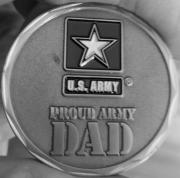Should civilian shooters get the same treatment as OIS survivors?
Ray Meyer, a retired sergeant of the California Highway Patrol, emailed this note to Force Science News:
Don't jump to conclusions on what I believe, but here's a question. We always treat the officer involved in an OIS as if it's a good shooting. Assume a citizen involved in a shooting has a concealed firearms carry permit or was acting in self-defense on his own property and based on his initial statement and initial review of the evidence the shooting appears justified.
What would you do if the citizen says he'll give you his firearm when he gets another one on and he tells you he will provide a full statement after he gets 2 sleep cycles and has his attorney present?
Do you give him a ride home to change clothes before taking him to the station for questioning and/or letting the press see him? Whatever you do for an OIS, would you do the same for a legally armed citizen? Is a team like an OIS team assigned, or are the on-call homicide detective and the standard CSI crew used? Should we care when a citizen with a concealed firearm carry permit is involved in a self-defense or threat-to-life shooting?
Retired after 32 years in law enforcement, I am authorized to carry a concealed firearm and I have a non-resident permit from the state where my daughter's family lives. So I'm curious about how I will be treated.
Dr. Bill Lewinski, executive director of the Force Science Institute, offers this response:
A legally armed civilian and a sworn peace officer are not comparable in the context of a shooting situation.
An officer is acting under the color of law and is generally performing his assigned role as society's representative when a shooting occurs and will likely continue in that role in some format after the shooting - subsequently the replacement of a professional instrument that is a required tool of the job. Further, as part of his selection process, he has been assessed on the basis of background checks, mental health and fitness evaluations, and training. His job performance is supervised and evaluated. He has a track record that is known to his department. He operates under a special duty and special regulations.
A civilian or retired law enforcement officer, even if legally armed, is likely not acting under color of law and may be an unknown entity to the investigating agency. In both cases, the shooting must be thoroughly and fairly investigated. But where an on duty officer is involved, a more specialized investigation is likely to be appropriate.
Because of the probability that it will be involved in a civil lawsuit, the department has a particular interest in the nature of an OIS investigation, apart from concerns about criminal violations. There may be Garrity issues, union and policy matters, media and community perceptions, and training considerations that don't apply to civilian actors.
Are officers really treated with the special sensitivity that Sgt. Meyer suggests?
They should be, because of their special status. But unfortunately, they still are not in many jurisdictions, given the same level of consideration of a citizen. To get rest, shower, change clothing and legal consultation prior to giving a statement, for example, all a civilian needs to do is invoke his Miranda rights. The citizen, if they choose, could come back sometime later with their attorney and give a formal statement. For officers on many agencies who feel they are trapped in a pressurized and coercive environment after a shooting, that would be a procedural improvement!



 Reply With Quote
Reply With Quote






